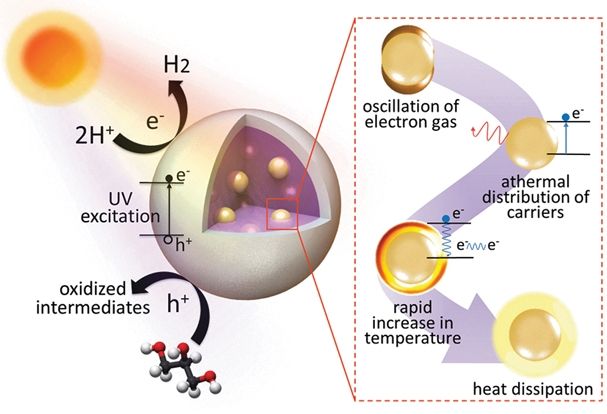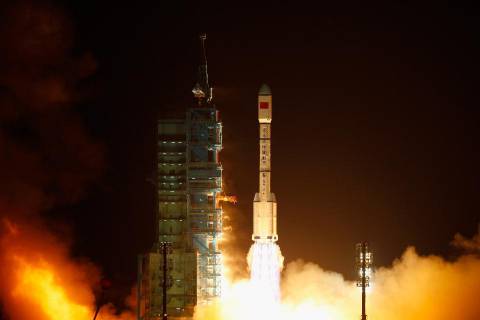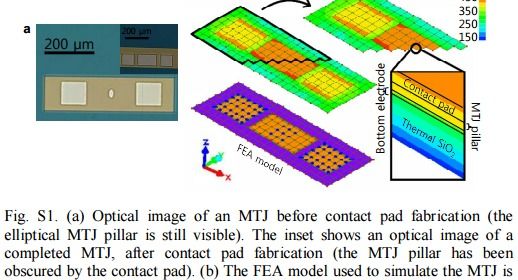Page 11337
Jul 19, 2016
Will Computers Redefine the Roots of Math?
Posted by Shailesh Prasad in categories: computing, mathematics
When a legendary mathematician found a mistake in his own work, he embarked on a computer-aided quest to eliminate human error. To succeed, he has to rewrite the century-old rules underlying all of mathematics.
Jul 19, 2016
Dropbox open-sources Lepton, a compression algorithm that cuts JPEG file size
Posted by Shailesh Prasad in categories: computing, information science
Cloud syncing and sharing software company Dropbox today announced that it has released an image compression algorithm called Lepton under an Apache open source license on GitHub.
Lepton can both compress and decompress files, and for the latter, it can work while streaming — that is, files can be expanded back into full size as they are being sent over the network. So Lepton is important for user experience, given how it can more quickly transfer data and show content. But at the same time, it has an impact on the data center infrastructure where files often end up.
“We have used Lepton to encode 16 billion images saved to Dropbox, and are rapidly recoding our older images. Lepton has already saved Dropbox multiple petabytes of space,” Dropbox software systems architect Daniel Reiter Horn wrote in a blog post.
Continue reading “Dropbox open-sources Lepton, a compression algorithm that cuts JPEG file size” »
Jul 19, 2016
Nissan cars are about to get some awesome self-driving features
Posted by Shailesh Prasad in categories: robotics/AI, transportation
Tesla isn’t the only automaker using semi-autonomous driving technology to lure customers. Nissan just released its version in Japan.
Jul 19, 2016
Robots Replacing Developers? This Startup Uses Artificial Intelligence To Build Smart Software
Posted by Shailesh Prasad in categories: business, robotics/AI, virtual reality, wearables
The role of technology within our personal and professional lives continues evolving at an exceptionally fast pace. From utility-based mobile apps and wearable devices, to the emergence of augmented and virtual reality, the digital revolution is expanding to cover every aspect of the human experience.
In an era of entrepreneurship, founders rely heavily on advancements in technology to develop cutting edge products, platforms and experiences that meet the growing demands of a global consumer base. As content remains essential to building a brand or launching a business, it’s also critical that companies have the capability to swiftly adapt in changing markets. Being able to successfully scale a business, amidst the inevitable pivots and unexpected turns, requires having access to the tools and solution-based software needed to create, modify and fix things on-demand.
For companies dependent on manpower to manage these responsibilities, efficiency becomes contingent upon talent and training, guided by sharp instincts and relentlessly working around the clock to assure tasks are not only completed effectively, but to further offset the likelihood of human error. For software developers, who have an extremely detailed and meticulous role, being such an invaluable piece to the puzzle can prove to be very risky, time-consuming and equally as expensive; especially as testing, predicting and automating becomes increasingly paramount. As companies aim to cut costs without sacrificing quality, while understanding the core function of technology is to provide streamline solutions to complex problems, what arises is the notorious battle of man versus machine, and also where a company like Dev9 steps in.
Jul 19, 2016
NASA Suggests Two Newly Discovered Exoplanets Could Host Life
Posted by Dan Kummer in category: alien life
Announcing the discovery of over 100 new exoplanets identified by the Kepler space telescope, NASA has highlighted four planets, potentially rocky bodies, two of which may be capable of supporting life, orbiting a distant star.
Located 181 light years from Earth, in the Aquarius constellation, K2-72 is a red dwarf. NASA’s planet-hunting Kepler satellite has found four bodies orbiting the distant star which, given their size, are likely rocky bodies similar to our own planet.

Continue reading “NASA Suggests Two Newly Discovered Exoplanets Could Host Life” »
Jul 19, 2016
New technique banishes acid reflux for good using an electric needle
Posted by Dan Kummer in category: biotech/medical
Matthew foster from Ripon, North Yorkshire, underwent a new NHS procedure for his acid reflux, involving an electric needle which fires low voltage electricity waves at the stomach valve.
Jul 19, 2016
Russia And China Discuss Joint Outer-Space Exploration, Moon And Even Mars
Posted by Dan Kummer in category: space travel
China and Russia are discussing joint cooperation in outer-space exploration, including missions to the Moon and even Mars, according to a statement by Russian Deputy Prime Minister Dmitry Rogozin on Wednesday.
“Yesterday, we (Rogozin and Vice-Premier of China’s State Council Wang Yang) worked for three and a half hours, discussing cooperation in the nuclear sphere and cooperation in the issues of interaction between our space agencies where there are such large projects as the deliveries of rocket engines, and cooperation in navigation systems,” the Russian vice-premier said.
He made his remarks during a talk with the heads of Russian regions and Chinese provinces and the managers of companies from both countries. The expo is an annual industrial exhibition held since 2014 within the framework of the Harbin Trade Fair.
Continue reading “Russia And China Discuss Joint Outer-Space Exploration, Moon And Even Mars” »
Jul 19, 2016
Researchers develop plastic flexible magnetic memory device
Posted by Klaus Baldauf in categories: computing, engineering, health, military, robotics/AI, wearables
It looks like a small piece of transparent film with tiny engravings on it, and is flexible enough to be bent into a tube. Yet, this piece of “smart” plastic demonstrates excellent performance in terms of data storage and processing capabilities. This novel invention, developed by researchers from the National University of Singapore (NUS), hails a breakthrough in the flexible electronics revolution, and brings researchers a step closer towards making flexible, wearable electronics a reality in the near future.
The technological advancement is achieved in collaboration with researchers from Yonsei University, Ghent University and Singapore’s Institute of Materials Research and Engineering. The research team has successfully embedded a powerful magnetic memory chip on a flexible plastic material, and this malleable memory chip will be a critical component for the design and development of flexible and lightweight devices. Such devices have great potential in applications such as automotive, healthcare electronics, industrial motor control and robotics, industrial power and energy management, as well as military and avionics systems.
Continue reading “Researchers develop plastic flexible magnetic memory device” »
Jul 19, 2016
A new tracking and quantification tool for single cells
Posted by Karen Hurst in categories: biotech/medical, genetics, health
New method for tracking single cells; definitely could be interesting for genetic mutation research such as cancer, Parkinson, etc.
As far as the scientists are concerned, the new possibilities that these programs offer should be available to as many researchers around the world as possible. Therefore the software is freely available, and can be downloaded from the following link: http://www.bsse.ethz.ch/csd/software/ttt-and-qtfy.html
Technical obstacles were removed as far as possible. “Our focus was on making the application also available to researchers who do not have background IT know-how,” Schroeder explains. And the application appears to work well: Two high-ranking publications can be traced back to the spyware for cells.
Continue reading “A new tracking and quantification tool for single cells” »
















